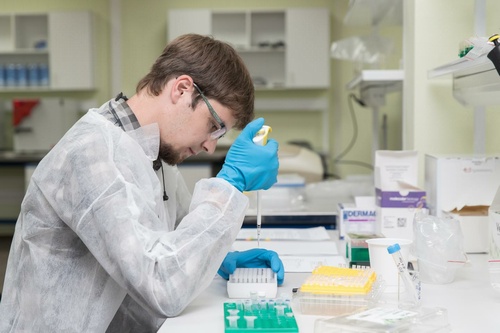Using even the most advanced legacy tools, it is very difficult to create a new variety of plants and it usually takes 10-12 years. Using genomic selection models, this process can be accelerated several times, finds the new study, using a new mathematical model for predicting crop phenotypic traits as a function genotype.
"Our mathematical model, based on machine learning methods, performs better than modern analogs as it contains a significantly smaller number of parameters," says Maria Samsonova, head of the Laboratory of Mathematical Biology and Bioinformatics at Saint Petersburg Polytechnic University.

A new mathematical model can predict economic performance of crops. Credit: Peter the Great St. Petersburg Polytechnic University
The researchers applied the model to predict phenotypic traits of an important crop, soybean. Among the traits, they analyzed plant height, number of seeds per plant, yield, protein and oil content in seeds.
"For breeders, it is very important to select parental plants able to produce offspring of high quality," says Anna Igolkina, engineer of the Laboratory of Mathematical Biology and Bioinformatics at Saint Petersburg Polytechnic University. "Due to the small number of parameters in our model, we can rank breeding pairs according to offspring quality and selected advanced parental pairs representing new potentially interesting donors of desired traits."




Comments